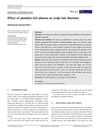 4 citations,
February 2018 in “Journal of Cosmetic Dermatology”
4 citations,
February 2018 in “Journal of Cosmetic Dermatology” Platelet-rich plasma injections made hair thicker for both men and women, with a greater effect in women.
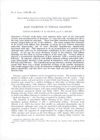 63 citations,
October 1972 in “British Journal of Dermatology”
63 citations,
October 1972 in “British Journal of Dermatology” Women with thinning hair have thinner hair strands than women without hair loss.
 February 2014 in “Journal of medical sciences”
February 2014 in “Journal of medical sciences” Treating androgenic alopecia can significantly increase hair thickness, especially in males, with hair color and scalp location also affecting hair diameter.
 April 2011 in “Global journal of health science”
April 2011 in “Global journal of health science” Aldactone effectively reduces hair thickness in women with excessive hair growth, both alone and with other treatments.
 April 2011 in “Global journal of health science”
April 2011 in “Global journal of health science” Spironolactone effectively makes hair shafts thinner in women with excessive hair growth.
 22 citations,
March 2020 in “Journal of The American Academy of Dermatology”
22 citations,
March 2020 in “Journal of The American Academy of Dermatology” DSC cell injections significantly improved hair density and diameter, showing potential as a hair loss treatment.
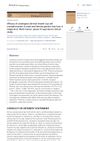 September 2023 in “The Journal of Dermatology”
September 2023 in “The Journal of Dermatology” Transplanting one's own hair follicle cells can improve hair loss in men and women, and is particularly effective in women.
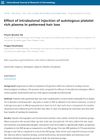 October 2020 in “International Journal of Research in Dermatology”
October 2020 in “International Journal of Research in Dermatology” Injecting your own platelet-rich plasma can improve hair loss treatment results with minimal side effects.
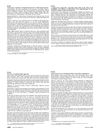 January 2008 in “Journal of The American Academy of Dermatology”
January 2008 in “Journal of The American Academy of Dermatology” Trichoscopy is a helpful and quick method to identify different types of hair loss in women.
 76 citations,
December 2006 in “Journal of Dermatological Science”
76 citations,
December 2006 in “Journal of Dermatological Science” Japanese women typically start experiencing hair loss after 40, with reduced hair density and thickness being the main factors.
 70 citations,
February 2017 in “Dermatologic Surgery”
70 citations,
February 2017 in “Dermatologic Surgery” Treatment with plasma rich in growth factors improved hair density and thickness for hair loss patients.
1 citations,
January 2019 in “Journal of the Egyptian Women's Dermatologic Society (Print)” Minoxidil 2% is more effective for female hair loss, but botanicals have fewer side effects.
27 citations,
January 2015 in “International Journal of Trichology” The supplement helps improve hair growth and reduce hair shedding.
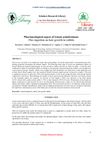
Eating flaxseed made rabbit hair longer and thicker and improved their weight and blood sugar and cholesterol levels.
 August 2024 in “Skin Research and Technology”
August 2024 in “Skin Research and Technology” Low-dose oral minoxidil can help increase hair growth in women with hair loss.

N793 may improve hair density in people with mild hair thinning.

Some plant-based ingredients may help with hair growth and care, but more research is needed to confirm their effectiveness.

The conclusion is that a treatment called cp-asiAR can reduce hair loss and promote hair growth, making it a potential new therapy for androgenetic alopecia.
 November 2023 in “Journal of Cosmetic Dermatology”
November 2023 in “Journal of Cosmetic Dermatology” Oral minoxidil is more convenient but topical minoxidil improves hair density better.
 September 2023 in “Medicine”
September 2023 in “Medicine” Herbal extract spray improved hair growth in a man with hair loss.
 2 citations,
December 1994 in “The Journal of clinical endocrinology and metabolism/Journal of clinical endocrinology & metabolism”
2 citations,
December 1994 in “The Journal of clinical endocrinology and metabolism/Journal of clinical endocrinology & metabolism” The treatment effectively reduced hair growth and was safe for patients with PCOS, but it needs better bleeding control.
 April 2024 in “Skin research and technology”
April 2024 in “Skin research and technology” Adding stromal vascular fraction to platelet-rich plasma injections did not significantly improve hair growth in androgenetic alopecia treatment.
Topical 5% minoxidil is safe and effective for treating hair loss in Korean men.
 60 citations,
June 2019 in “Ageing Research Reviews”
60 citations,
June 2019 in “Ageing Research Reviews” Fat from the body can help improve hair growth and scars when used in skin treatments.
 September 2023 in “International Journal of Dermatology”
September 2023 in “International Journal of Dermatology” Younger people are at a higher risk for Fibrosing Alopecia in a Pattern Distribution than previously thought, with common symptoms and possible involvement of mast cells in its development.
 34 citations,
August 2003 in “Clinical and Experimental Dermatology”
34 citations,
August 2003 in “Clinical and Experimental Dermatology” Pregnant women's hair gets thicker.
 61 citations,
April 2012 in “British Journal of Dermatology”
61 citations,
April 2012 in “British Journal of Dermatology” Caucasian women's hair appears thickest in their 20s, with perceived thinning after mid-30s due to both decreasing density and diameter.
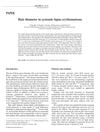 6 citations,
April 2006 in “Lupus”
6 citations,
April 2006 in “Lupus” People with lupus and rheumatoid arthritis have thinner hair than healthy people.
 2 citations,
August 2019 in “International Journal of Cosmetic Science”
2 citations,
August 2019 in “International Journal of Cosmetic Science” Older age and certain lifestyles are linked to thinner, weaker hair, while how you see your hair relates to its thickness.
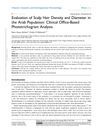 1 citations,
December 2022 in “Clinical, cosmetic and investigational dermatology”
1 citations,
December 2022 in “Clinical, cosmetic and investigational dermatology” Arab hair is generally thicker but less dense compared to other ethnicities, affecting hair disorder diagnosis and treatment.



























